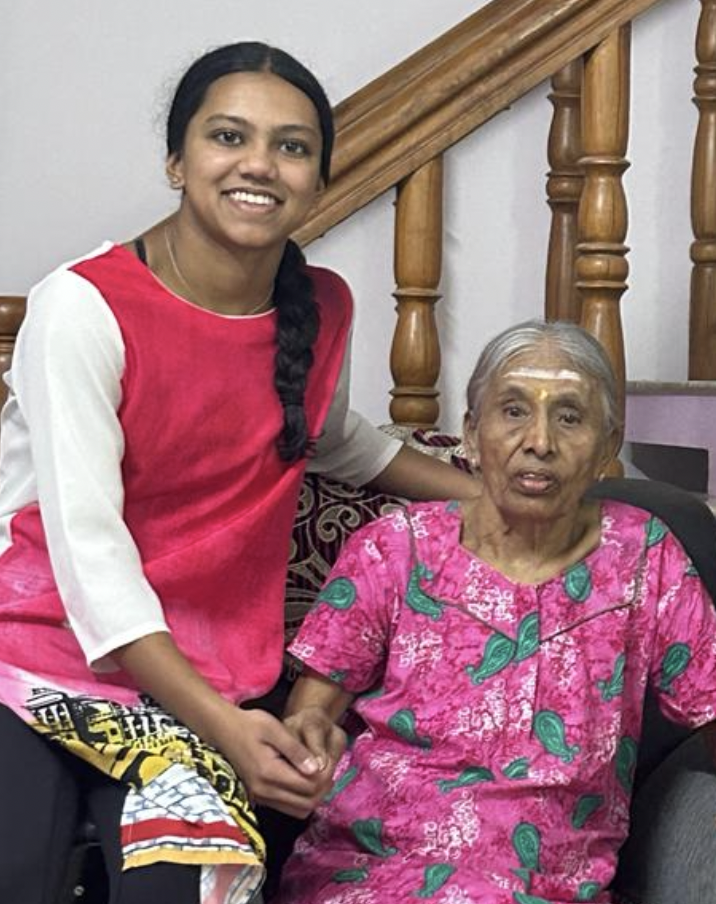Growing up, everyone said I look like my grandmother. Besides the fact that she had chosen my name, we shared the same chatty personality and competitive spirit during dhayam, the Indian board game that could turn any regular night into a championship. Our entire relationship was built on stories and the kind of language that feels like home. But when she was diagnosed with Type 2 diabetes, and later Alzheimer’s, I watched that language fade. First it was repeated stories. Then forgotten details. And then came the day she looked at me… and didn’t recognize the name she had given me.
That’s when I understood that memory is its own kind of language – and hers was slipping away.
I didn’t just want to think about what was happening – I wanted to understand it. I started reading everything I could about Alzheimer’s and diabetes, and the more I learned, the more I wanted to share those findings with people who could actually use them.
That’s why I sent over 200 cold emails: to reach real labs doing real work.
Eventually, I earned a research position at the University of Georgia, where I now study how chronic hyperglycemia contributes to Alzheimer’s disease.


But everything truly clicked when I began working with children.
At Aurora Day Camp, supporting 4–5-year-olds affected by pediatric cancer, and at KISS ABA & Speech Therapy, helping children with autism and developmental needs, I saw communication long before words ever appear.
At the same time, I realized that language doesn’t just shape memory – it also shapes healing, which led me to Duke University’s Thompson Writing Program and Cornell University’s Cognitive Science of Language Lab.
Those experiences made one thing clear: the children I worked with weren’t just navigating medical conditions – they were navigating a world that didn’t always speak their language.
And that’s where neurology, language, and child development converged into one purpose for me: developmental pediatric neurology. Because in the end, a child’s brain is like a puzzle – and I want to help every child find the pieces that let their story make sense.